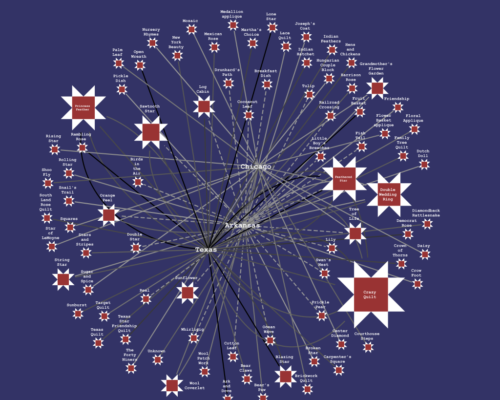On October 23rd, the National Federation of Advanced Information Services (NFAIS) held a one-day workshop on “The Impact of Open Access Models” at The Hub’s Cira Centre in Philadelphia. The twelve speakers ran the gamut from large publishers and aggregators to university presses, librarians, researchers and funders. At the outset, the goal of the workshop was to describe the current…
Teaching the Humanities as a Survival Skill: Session Two in the workshop series The University Worth Fighting For
On October 22, the CUNY Graduate Center held The Futures Initiative workshop titled Teaching the Humanities as a Survival Skill (#fight4edu). This was the second in the workshop series The University Worth Fighting For. These workshops discuss and explore student-centered and engaging pedagogical practices and their relationship or links to various social injustice issues, such as race, equality and gender.…
Pratt launches new Advanced Certificate in Digital Humanities
The Advanced Certificate in Digital Humanities reflects the latest trends in the intersection of digital humanities and the information professions, including digital cultural heritage; data collection, analysis, and visualization; instructional technology and pedagogy; user experience; and the changing natures of research, publication, and outreach in the digital age. Courses emphasize the special role of information professionals in supporting digital humanities…
VOYANT
The instructional resource of Voyant – Part 1 teaches beginners an important technology skill by clarifying the basic concepts underlying the default interface, and by providing a list of supplemental tools that may be added to the the default interface. A series of text analysis questions and Bloom’s Taxonomy may be applied for a specific learning purpose in Voyant – Part 2 and Voyant – Part 3.
Using Voyant for text frequency analysis
Voyant is a free textual analysis tool that can be found online at voyant-tools.org. This instructional post describes how to use Voyant to do text frequency analysis. This includes using tools that Voyant offers as well as exporting data and analyzing it on a spreadsheet. The video also mentions the other capabilities that the website offers, and demonstrates where different elements can be found on the page. I used a recent project of my own to illustrate each step of the process.
Preparing Your Data for Gephi
[vimeo 126944806 w=500 h=282] This video is a tutorial about how to decide whether your source material and data are suited to Gephi, a network visualization tool, and how to format and otherwise prepare your data to be imported into Gephi. You can download Gephi at gephi.org, and view the tutorial I mention about manipulating your data once it’s…
How to “evaluate, value, and promote digital scholarship”
CUNY Graduate Center brought together five DHers to discuss “Evaluating, valuing, and promoting digital scholarship.” Where is the place of digital scholarship in the Teaching-Research-Service Triangle? Although everyone added to the discussion from their unique disciplinary perspectives, not all were able to propose methods for evaluating digital scholarship? Steven Jones answered the question by pointing to projects he has been…
“(How) Are Medieval Places Different From Ancient Ones: Thoughts on Digital Mapping the Middle Ages” – David Joseph Wrisley @ Columbia’s Butler Library
On the evening of April 22, I attended a lecture at Columbia University’s Butler Library entitled “(How) Are Medieval Places Different From Ancient Ones: Thoughts on Digital Mapping the Middle Ages.” The presenter was David Joseph Wrisley, Associate Professor of English at the American University of Beirut. He is currently on sabbatical from that institution and is a visiting scholar…
“When Big Data Slows Down: Digital Humanities and the Study of Roman Amphitheaters” (Dr. Sebastian Heath, NYU unCOMMON Salon, April 21, 2015)
Dr. Sebastian Heath, Clinical Assistant Professor of Ancient Studies at the NYU Institute for the Study of the Ancient World, spoke at the last NYU unCOMMON Salon of the Spring 2015 semester on April 21, 2015. The topic of his talk was the DH methods by which he is attempting to enrich our understanding of leisure in the Roman Empire. But…
Deimosa Webber-Bey (’13) publishes article on Runaway Quilt Project
Pratt SILS alum Deimosa Webber-Bey published an article on her The Runaway Quilt project in Issue 6 of the Journal of Interactive Technology and Pedagogy. The project started while Deimosa was a student in the Digital Humanities and Information Visualization courses at SILS. Read the open access article at http://jitp.commons.gc.cuny.edu/runaway-quilt-project-digital-humanities-exploration-of-quilting-during-the-era-of-slavery.
